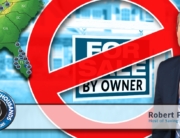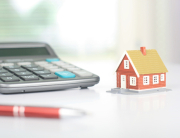Every successful process begins with a foundation, a base upon which an entire strategy is built to reach the established goal. Without a strong foundation, the whole system could crumble, leaving you scrambling trying to pick up the pieces. When it comes to selling your home, it could be a long road to travel, often losing money along the way.
The listing price is the foundation when you’re selling your home. It’s the base upon which your entire home selling strategy is built, ultimately determining how long your home will be on the market and the price for which your home will be sold. The process of selling of even buying a house can be quite stressful, especially if this is your first time doing this. With this being said, there is nothing to worry about, as you should know that there are many specialist companies out there that can give you a helping hand and make this transition a lot easier. From companies that service the following suburbs in Sydney to helping you find the right property in France, you should remember, wherever you are in the world, there’s always someone willing to give you the right advice in order to move forward.
The problem is, many consumers take this into their own hands and try traveling the FSBO road; you can learn more here as to why that hardly ever works out. Even when hiring a real estate agent, they feel as though they can get more for their home than the other homes in the neighborhood. In their minds, it’s justifiable. They’ve put so much into remodeling and upgrading their home, like installing a conservatory similar to what Leka Roofs offer and anything less than what they believe is a fair price just won’t cut it.
I can sympathize with them, but it still doesn’t change the fact that, besides hiring the right agent, the price you list your home for is going to be the most important factor in determining whether it sells. In truth, those two components go hand-in-hand.
As an influential voice to his millions of listeners through the Saving Thousands Radio Network, Robert Palmer has one clear message for consumers: trust your real estate agent. “Overpricing a home is a huge mistake that a lot of homeowners make. You’ve hired a professional. Your real estate agent knows the market. They have the crucial information needed to get your home sold for the best price,” he said. “My advice is, trust your agent. They know what they’re doing.”
Trusting your real estate agent is most definitely a safe bet. It’s also a smart one. Robert also suggests that you do your research when picking a real estate agent. Make sure they’re knowledgeable about the market. And he emphasizes the importance of an effective marketing strategy.
The mystifying truth is, some homeowners are still convinced they can price their home above market value and get the result they want. In limited instances this may be true, but are you really willing to risk a lot of time and money to find out? The fact is, the cons of overpricing your home heavily (I’m talking King Kong size) outweigh the pros. The following reasons will likely convince you to leave the home selling to the pros.
You may stumble right out of the gate
You’ve done it. Settled on a price that you think is fair for your one-of-a-kind house. You keep your head up and stay positive. The offers will begin to come in—you just know it.
It could only take a few days to become immensely discouraged, especially when the other homes in your area are selling fairly quickly.
Talking to a real estate agent and discussing realistic expectations can reduce the amount of frustration throughout the process.
Palmer stresses the impact your home’s listing price has on valid offers. “Those early days when you’re first putting your home on the market, the most interest is generated,” said Palmer. “If you’re overpriced, it’s not going to get offers.”
Knowing that your home is the largest financial asset that you most likely hold, he encourages consumers to leave this in the hands of the real estate agent. “It’s critical to price your home correctly, right out of the gate. This is where you want to rely on your real estate agent to help show you previous and current sales in your neighborhood and how they affect your home’s value. “
“Many buyers are waiting for new listings to come on the market. The first three weeks are the best time to sell a home if it is priced right,” said Mark Ferguson, Realtor and author of the book Invest Four More.” In a hot market, the first week is the best time to sell. If a home does not sell in the first month, buyers will start to wonder what is wrong with it. When it (the home) is overpriced, the buyers won’t want to see the home or may not even know it is for sale.”
Stumbling out of the gate can have serious long-term consequences.
You won’t reach your target buyers
The only way you’re going to get your listing sold is to reach qualified buyers who are looking at homes within the price range of your listing. But if you overprice your home, those buyers will never see your listing. “When buyers are looking for a house, they have certain price ranges they look in. They also expect houses in certain neighborhoods to be in a particular price range. If they are looking for a home in the $175,000 to $200,000 price range, their agent may send them listings from $165,000 to $210,000,” Ferguson said.
This means if your home is significantly overpriced, no buyers who can compete to purchase your home are going to find your listing. You’ll actually be competing at a higher level, which poses its own problem, explains Lorraine Labonne-Storch, a sales associate at Coldwell Banker Residential Brokerage. “By overpricing a home, the seller places himself in a category in which he will be unable to compete with other similarly priced homes. This will usually result in the overpriced home sitting on the market for an extended period of time.”
Those homes that can compete at the higher level will have the amenities that those buyers are looking for, leaving your home to be in market limbo. This can be extremely stressful. “Having your house sit on the market for an extended period of time due to it’s being overpriced means more time in limbo for the seller,” said Labonne-Storch. “Having to keep the house neat and tidy at all times in case someone wants to see it, and repeated showings with no positive outcome can put a great deal of stress on an individual or family.”
You’re left with a price reduction
Just hearing the term “price reduction” can be the equivalent of nails on a chalkboard for a real estate agent. In most cases, it doesn’t just end with one reduction; it’s a process of cuts, and it benefits the buyer in many ways. “If you’re overpriced, it’s not going to get offers. And now you have to make a price reduction, which makes people think you’re desperate. That price reduction can be a red flag,” said Palmer. That red flag can lead to a significant issue. “New buyers can see that you’ve lowered the price, so now they’re going to start low-balling you,” he said.
Real estate expert and a member of the RE/MAX Hall of Fame, Bruce Ailion, has the perfect analogy for his clients and potential home sellers when it comes to the listing price of their home. “I explain it to clients this way: a hot and fresh Krispy Kreme donut sells at a price often as quickly as they are made,” Ailion said. “The next day they are boxed and sold at a discount at a grocery store. One day later they are selling at half price. The next day they are trash.”
Ailion also believes that as your home sits on the market sporting a price reduction, it leaves buyers to wonder if something is significantly wrong with the house. When a home has not sold for 60, 90, or 120 days, the buyer asks what’s wrong with the house, why has the entire market rejected it?”
There’s also one key factor that most sellers don’t take into consideration. “Overpricing your home just makes your competition look more attractive at market price,” Ailion said. While you would have been extremely competitive having priced your home accurately, your local competition is now being amplified to those buyers who are your target audience.
How to price your home accordingly
As a highly relied-upon financial and real estate source, I’ll let Palmer drop the mic on this one:
“Real estate agents and consumers don’t get to pick the price of the house; the market picks the price of the house,” Palmer said. “The real estate agents out there looking at comparable sales are figuring out what the home can sell for, and what the best price to list is. Because when you overprice a house, you can end up costing yourself money in the end. Trust your agent, and don’t overprice the home.“





